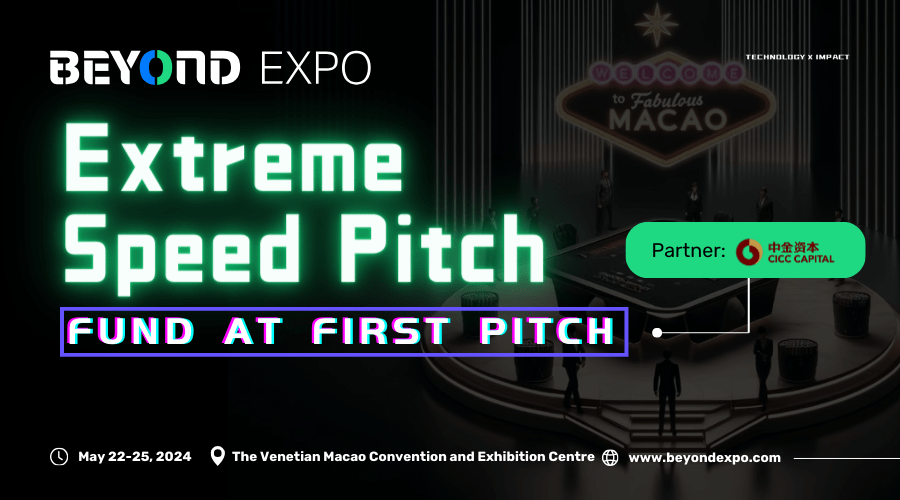Editor's Note: Choon Yan (CY) Tan leads PayPal and Braintree’s startup, accelerator and incubator activities across Asia Pacific. He has experience in banking technology, and previously led Google’s supply chain integration team in California, with additional specialties in data analytics on Google Android and Chrome products. CY is also a payment optimisation mentor in various major accelerators such as ONL, MaGIC and SBC and a speaker at regional startup conferences such as Echelon and TechCrunch.
Golden Gate Ventures (GGV) and East Ventures (EV) are two influential VCs based out of Singapore whom entrepreneurs rely on for mentorship, talent access and possible acquisitions through the VCs’ extensive global network. GGV and EV have been Startup Blueprint partners since the program was launched in Asia Pacific a year ago.

![]()
I caught up with Jeffrey Paine, GGV Founding Partner and Willson Cuaca, EV Co-Founder & Managing Partner, on separate occasions to talk about their firms. We chatted about how they are helping the startup community.
Jeffrey Paine, Founding Partner, Golden Gate Ventures
Willson Cuaca, Co-Founder & Managing Partner, East Ventures

Golden Gate Ventures
Jeffrey recalled in 2010 when he launched Founder Institute (FI) in Singapore, the startup scene had few mentors. After getting Vinnie Lauria’s help as a mentor for FI startups in Southeast Asia, many founders continually reached out to Jeffrey and Vinnie for guidance on how to raise rounds in the US. So in 2011, Jeffrey founded GGV with Vinnie and another former entrepreneur, Paul Bragiel, to bridge the gap in seed round investment. Paul is an investor/advisor in 33 Silicon Valley companies, including Uber, and previously founded three global tech companies. GGV has since invested in over 25 companies across Asia and has raised more than USD50M. Their investments range from USD100K to 2M in fintech, marketplace, e-commerce and supporting services domains.
East Ventures
EV was founded by four co-founders, Willson Cuaca, Batara Eto, Taiga Matsuyama and Chandra Tjan in 2010. Batara was Willson’s high school classmate and Taiga was connected to him as an investor in Mixi which he co-founded. Five years ago, they recognised a huge untapped potential in Indonesia, a nation of 22 million active Internet users with a low electronic services penetration rate. The company quickly put up an investment fund. EV invests in anything below USD500K, with follow-on investment rounds. They have invested mainly in e-commerce and its supporting services.
Founder Thesis
It is common for Jeffrey and Willson to receive thousands of investment proposals and recommendations each year. They pour through these and interact with numerous founders with the goal of uncovering The Next Big Thing. They have each formed their own thesis on the characteristics of founders who have the material to be moulded for greater heights.
- Be Yourself
Time is precious for both entrepreneurs and VCs so the first meeting sets the tone for further interactions. “I’ll expect the founders to be themselves, tell us the founding story, show the traction,” said Willson on his expectations for first founder-investor meetings. He added, “The product doesn’t matter and many a times the startup won’t have a product in the early days. What matters most are the founder’s traits such as being honest, patient and having a vision. Don’t cheat, lie or bullshit. It’s easily discoverable if you do.”
- Focus on the Tangibles
In contrast, Jeffrey focuses on the tangibles in the first meeting. “The first bar to entry will be a prototype regardless whether it’s private beta or publicly used. This shows the founding team is able to execute. My own fund research data shows that 97% of the top 35 startups in Southeast Asia are clones. Hence, execution is preferred over presentation slides and ideas on a napkin.”
- Show Your Resourcefulness
Jeffrey and Willson both echoed the same sentiments towards resourceful founders. Jeffrey shared, “Founders should have an unfair advantage of a domain knowledge that the rest do not know. Either they’re from the domain or they’ve figured out the drivers, challenges, current situation and alternatives after an extensive period of study. Resourceful founders ask weird questions that people normally don’t ask to test out their hypothesis.” Willson reiterated this view by adding, “Great founders are highly resourceful which translates into great problem solving skills. They do not come up with excuses. You can quickly see their progression as their knowledge base grows.”
- Don’t Be Afraid to Fail
Willson said, “Unsuccessful founders often hide when they do not perform. They do this because they don’t recognize that they’ve failed. It’s hard to help them this way and this ties back to my initial point on founders being dishonest. A large number of founders underperform because they flip-flop on issues and become indecisive on business decisions.” Jeffrey pointed out that being unfocused is the fatal error. He shared, “Founders have to be committed when starting new things and be 100% focused on it. Most people are risk-averse and try to juggle a few things at the same by doing things on the side.”
- Think Small, Aim Big
Willson highlighted that targeting a sizable market and the founder’s ability to scale are important. “Target a single big market for dominance first before regional expansion. Multiple market launches at an early stage like Rocket Internet might not be wise due to huge upfront capital costs. Secondly, the rapid knowledge growth of founders is more important than what has been achieved in the past.” Jeffrey added, “Founders and their teams have to be detailed and adept in product metrics, marketing and distribution, and understand analytical tools.”
If you are thinking of reaching out to Jeffrey, Willson and their teams to pitch your business ideas, here are some pro-tips:
- Do not be discouraged if investors think your plan needs more work. Ask for permission to continue engaging with the VC through regular investor updates.
- Be genuine and stick to your words.
- Whiskey is the favorite drink for Jeffrey and the GGV team.







